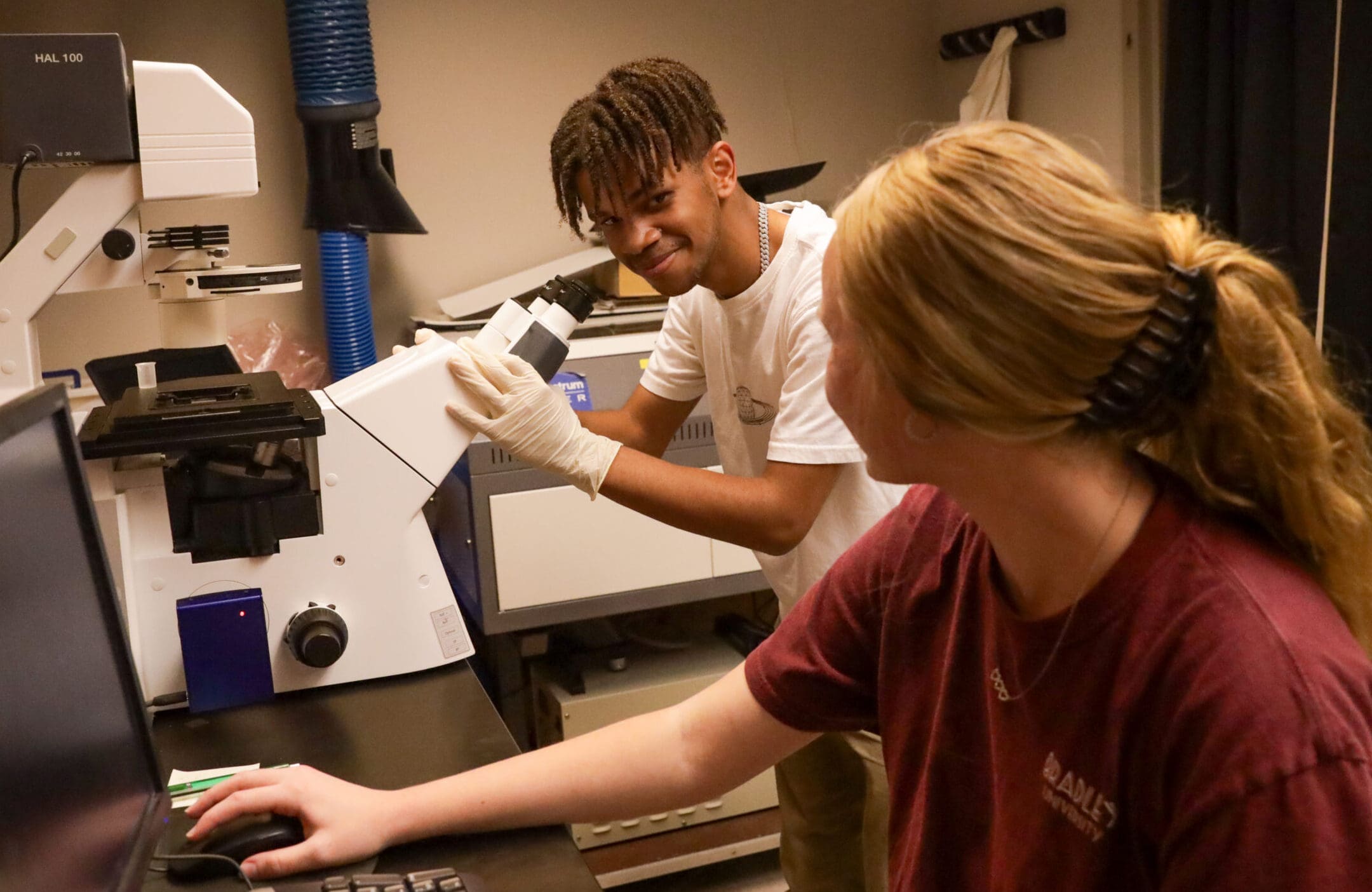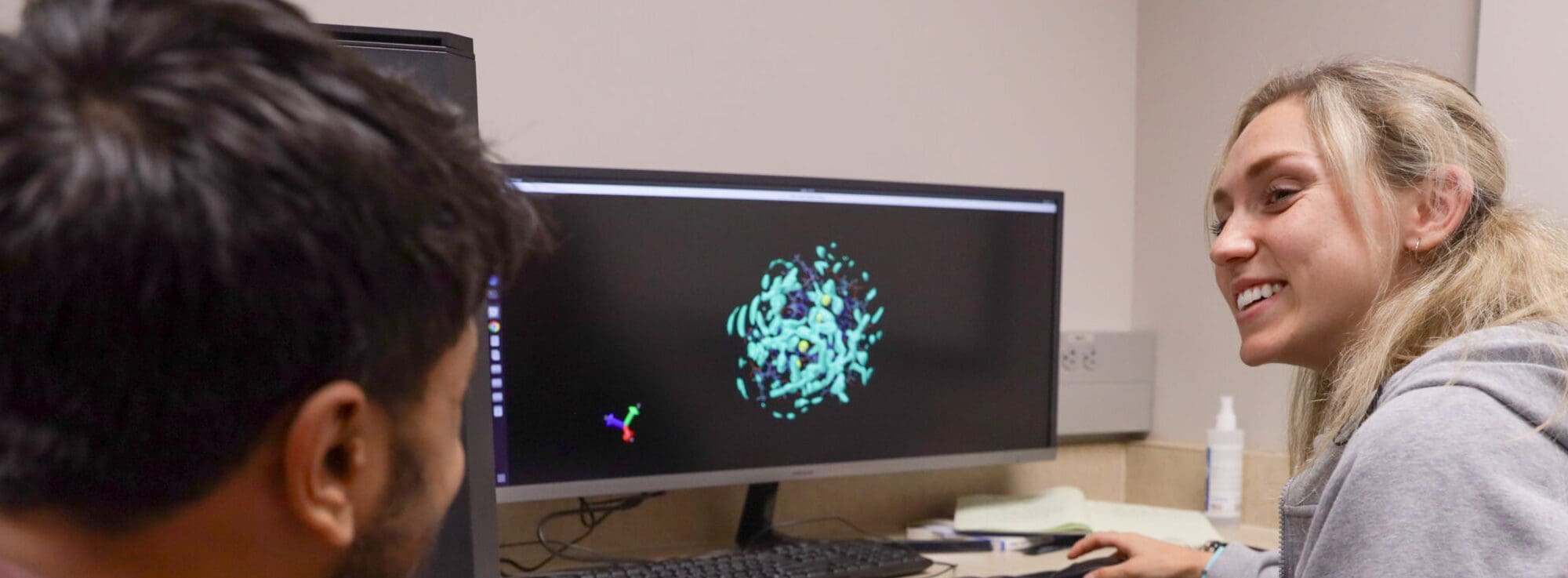Home / Academics / Programs / Major / Biochemistry
Biochemistry
Biochemistry is where chemistry and biology meet, helping you understand life at the molecular level. As a biochemistry major, you’ll build a strong foundation in both fields while gaining hands-on experience in labs and faculty-mentored research—starting as early as your first year.
Whether you’re interested in medicine, pharmaceuticals, forensic science, or cutting-edge research, this program prepares you for careers in biomedical fields or graduate studies. With options like a combined BS/MS program and year-round research opportunities, you’ll develop the skills and experience to make an impact in agriculture, healthcare, and beyond.
Advance your understanding and extend your undergraduate Biochemistry education into a Master of Science that continues the experiential learning curriculum.
Experiential Learning
- Early Research Opportunities – Participate in faculty-mentored projects starting your first year.
- Year-Round Research – Continue research through labs, independent studies, and summer grants.
- Real-World Impact – Develop lab skills and contribute to advancements in agriculture, medicine, and biotechnology.

Program Details
Take your understanding of the chemical basis of life to the next level with our combined BS/MS program. Start graduate-level courses in your senior year, allowing you to earn both degrees in less time than pursuing them separately.
You’ll also work closely with a faculty mentor on research throughout your final three years. Finish the program with a comprehensive oral exam, thesis project, defense, and public seminar, ensuring you’re well-prepared for advanced careers or further studies.
Career Opportunities
Biochemistry majors open doors to careers in fields like biomedical research, forensic science, pharmaceutics, and more. Recent graduates have found jobs at organizations such as:
- U.S. Department of Agriculture
- St. Louis Metropolitan Crime Laboratory
- Emerald Performance Materials
- Exelon Energy

